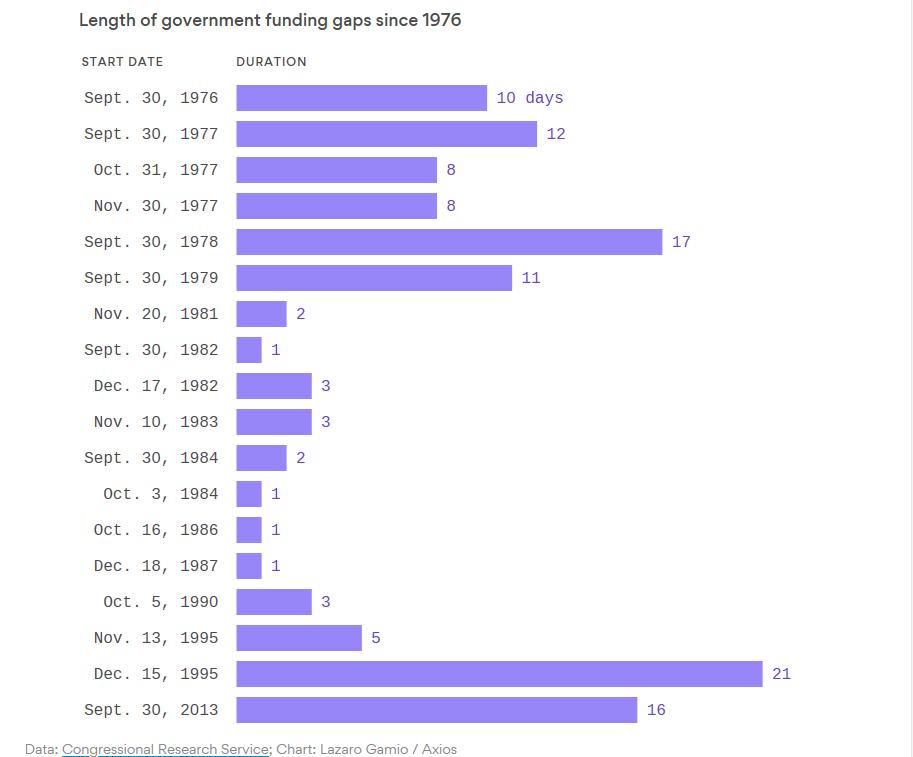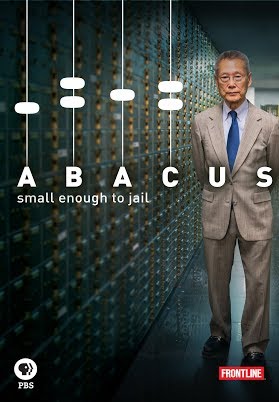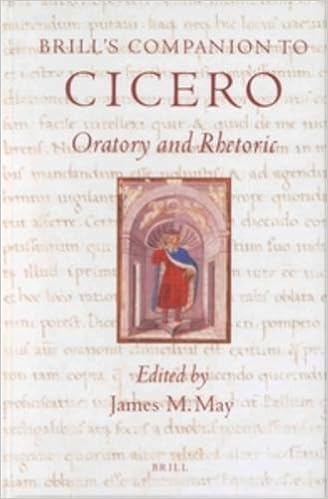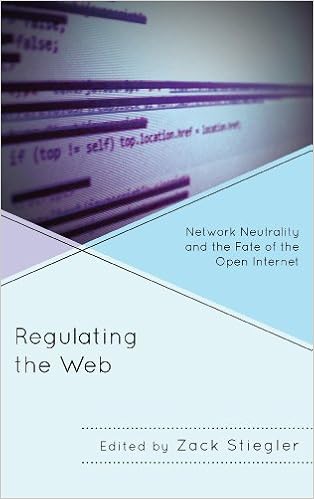According to a Congressional Research Service Report entitled Federal Funding Gaps: A Brief Overview by James V. Saturn, there have been 18 funding gaps since fiscal year 1971. Almost all of the funding gaps occurred between fiscal years 1977 and 1995. During this 19-fiscal-year period, 15 funding gaps occurred. Multiple funding gaps occurred during a single fiscal year in four instances: (1) three gaps covering a total of 28 days in fiscal year 1978, (2) two gaps covering a total of four days in fiscal year 1983, (3) two gaps covering a total of three days in fiscal year 1985, and (4) two gaps covering a total of 26 days in fiscal year 1996.
 Brooklyn Law School Library has in its electronic collection The Government Shutdown of 2013: Perspective and Analysis by Rosanne C. Lundy. According to the description “When federal agencies and programs lack appropriated funding, they experience a funding gap. Under the Anti-Deficiency Act, they must cease operations, except in certain emergency situations or when law authorizes continued activity. Failure of the President and Congress to reach agreement on interim or full-year funding measures occasionally has caused government shutdowns. Government shutdowns have necessitated furloughs of several hundred thousand federal employees, required cessation or reduction of many government activities, and affected numerous sectors of the economy. This book discusses the causes, processes, and effects of federal government shutdowns; economic activity during the government shutdown and debt limit brinkmanship; impacts and costs of the October 2013 federal government shutdown; a brief overview of federal funding gaps; and operations of the Department of Defense during a lapse in appropriations.”
Brooklyn Law School Library has in its electronic collection The Government Shutdown of 2013: Perspective and Analysis by Rosanne C. Lundy. According to the description “When federal agencies and programs lack appropriated funding, they experience a funding gap. Under the Anti-Deficiency Act, they must cease operations, except in certain emergency situations or when law authorizes continued activity. Failure of the President and Congress to reach agreement on interim or full-year funding measures occasionally has caused government shutdowns. Government shutdowns have necessitated furloughs of several hundred thousand federal employees, required cessation or reduction of many government activities, and affected numerous sectors of the economy. This book discusses the causes, processes, and effects of federal government shutdowns; economic activity during the government shutdown and debt limit brinkmanship; impacts and costs of the October 2013 federal government shutdown; a brief overview of federal funding gaps; and operations of the Department of Defense during a lapse in appropriations.”


 If you want a tale of a bank charged with falsifying loan-application documents by inflating borrower assets, incomes, and job titles, and “fraudulent mortgages” being sold to Fannie Mae, the federally backed mortgage company, see the documentary
If you want a tale of a bank charged with falsifying loan-application documents by inflating borrower assets, incomes, and job titles, and “fraudulent mortgages” being sold to Fannie Mae, the federally backed mortgage company, see the documentary  When Cicero was attacking the corrupt governor Gaius Verres (see Brooklyn Law School Library’s 2011 e-book
When Cicero was attacking the corrupt governor Gaius Verres (see Brooklyn Law School Library’s 2011 e-book  For more, see Brooklyn Law School Library’s 2002 e-book
For more, see Brooklyn Law School Library’s 2002 e-book  Brooklyn Law School Library’s e-book collection has a great title for this time of year:
Brooklyn Law School Library’s e-book collection has a great title for this time of year: 
 The Brooklyn Law School Library
The Brooklyn Law School Library  Earlier this year, the NYC Council passed legislation,
Earlier this year, the NYC Council passed legislation,  One title stands out:
One title stands out:  The Brooklyn Law School Library has in its collection
The Brooklyn Law School Library has in its collection  Brooklyn Law School Library’s
Brooklyn Law School Library’s  The second title is
The second title is